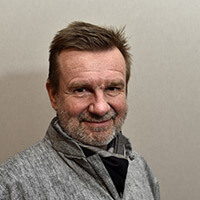At the same time as it opened its workshops in Paris and Milan to the public for the European Métiers d’Arts Days in March, Vacheron Constantin announced the creation of the Cercle 250 whose purpose is to safeguard heritage. Julien Marchenoir, Brand Equity and Heritage Director at the Manufacture, explained how the idea came about and how it is taking shape.
Julien Marchenoir: Vacheron Constantin is the oldest watch manufacturer whose activity has continued uninterrupted since it was established in 1755. We asked ourselves what benefit could be gained from this history and expertise. At the same time, we were interested in developing partnerships with the arts in general and with music in particular, notably as patron of the Orchestre de la Suisse Romande, or by supporting the young Spanish conductor Inma Shara. The idea came from a combination of the two. As a watchmaker, we had already launched initiatives to pass on skills and expertise in our own specialist field and in related areas. Why shouldn’t other companies share the same values and contribute their talent to a common cause? Which is how the Cercle 250 came to be.
The common denominator of shared values and a history of more than 250 years of uninterrupted activity weren’t enough. Hence we adopted other criteria. A company must be at the head of highly developed manufacturing skill and master every stage in the production process. This rules out companies which rely excessively on outside contractors, and service providers such as financial institutions and auction houses, some of which are certainly old enough to qualify. We also insist that these companies have a global outlook rather than limiting their scope.
Of course, imposing these conditions considerably reduced the number of potential candidates. At the thinking stage, we identified a thousand companies worldwide which were established more than 250 years ago and have been in business ever since. At the end of the process, only 150 remained whose savoir-faire is by definition based on craftsmanship, because they were founded before the industrial revolution.
We could see that for obvious cultural reasons, European firms were more likely to be interested, when this type of company can have far wider origins. We thought an announcement of this type would have positive repercussions to this effect. Also, Vacheron Constantin was involved in the European Métiers d’Arts Days, originally a French initiative. We discussed our idea with the organisers who thought such a project between peers had potential and encouraged us to go ahead. I think this was the right decision as we’re now busy organising a first round of discussions. By autumn, we should be ready to announce what you might call the nucleus of the Cercle 250, made up of five or six companies based in France, Holland, the United Kingdom and Germany.
Even more encouraging, companies on the brink of reaching 250 years of uninterrupted history have already expressed their intention to join us. Similarly, we’ve had contact with several project champions who are struggling to find the support needed to conserve heritage, particularly in Italy and the Iberian Peninsula where funds set aside for culture are shrinking. All in all, this was the right decision and one that quickly opened up new perspectives.
When we launched the idea for the Cercle 250, whose purpose is to safeguard tangible and intangible heritage, we were inundated with questions about what such a project could actually represent. Supporting the Martin Bodmer Foundation is a chance for us to demonstrate what we aim to achieve. The Foundation has one of the finest private libraries in the world. It conserves a priceless collection of antique manuscripts and books. However, it lacked its own restoration expert and therefore had to outsource restoration and conservation to the exceptionally talented Florence Darbre. As part of our wish to perpetuate expertise, we offered to fund a restoration studio within the Foundation, and to train a restorer who can then take over from Florence Darbre, under her guidance. Of course, all future projects will be vetted by a cultural and scientific committee, but this first initiative sets the tone. The Cercle 250 is on track.

















